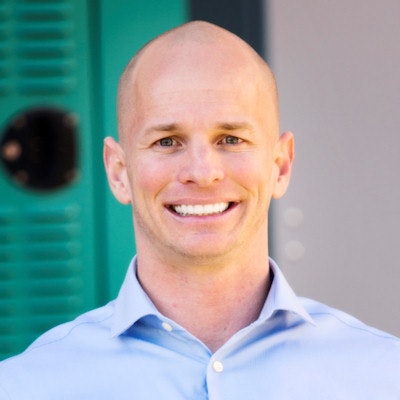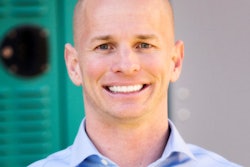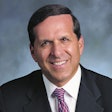
Recognize the number 3:59.4? Does the date May 6, 1954, ring any bells? It was the day a 25-year-old English medical student named Roger Bannister made history for breaking the four-minute mile at the Iffley Road track in Oxford, U.K, running it in 3 minutes, 59.4 seconds.
 Curtis Marshall is the director of partner operations for Dental Intelligence.
Curtis Marshall is the director of partner operations for Dental Intelligence.Breaking the record was a major milestone for Bannister, and the track was eventually named after him to commemorate the moment. Bannister is remembered for being able to do what others before him couldn't and that his accomplishment inspired others to try and succeed.
Six weeks after Bannister's accomplishment, Australian John Landy broke his record, running a mile at a track meet in Finland in 3:58. This had the world wondering how two runners suddenly accomplished what some believed could never happen.
In a recent Harvard Business Review article about this historic accomplishment, Bill Taylor wrote the following:
"Was there a sudden growth spurt in human evolution? Was there a genetic engineering experiment that created a new race of super runners? No. What changed was the mental model. The runners of the past had been held back by a mindset that said they could not surpass the four-minute mile. When that limit was broken, the others saw that they could do something they had previously thought impossible."
Tackling your 4-minute mile
But, how does this apply to dental practices? The performance goals you haven't achieved at your practice is your four-minute mile.
A certain number of new patients in a month? A percentage increase in production? An annual revenue achievement? What you are hoping to do but haven't yet done is secondary in importance here. The fact that you have a goal, even if you haven't yet accomplished it, is awesome! Goals can be valuable markers of progress, but achieving a goal isn't the sole measurement of success. Any incremental progress toward a goal also is significant and should be celebrated -- no matter how "small" that progress might be.
The method to the madness
When Bannister set out to beat the record, he didn't just wander onto that Oxford track and start running. He prepared, experimented, and adjusted. He failed, again, again, and again, but didn't let it deter him.
Bannister was actually a medical student while training to break the four-minute mile. He used his medical and scientific background, researching and testing, to improve his performance and time.
Also, he didn't achieve his goal alone. He took a team approach. He had two running friends that he experimented on and served as pacers while he ran the mile. They were critical to his success -- and not just on the day of the race. They encouraged him, participated in his extensive testing and training efforts, and pushed him to try harder. All of this speaks to a process or an incremental, measurable effort to progress from one place to another.
Walk before you run
Once you identify your practice's four-minute mile, now what? Should you just start running? Start working longer and harder? Spend more money to add staff, marketing, or new equipment? Some or all of these might be part of the answer. Instead of running too far ahead, pace yourself. Take the time to gather actionable data about what is happening, right now, in your practice. You need to know where you are before you can really determine where you want to go.
For example, before attempting to increase production, you should track the following:
- Hygiene reappointments
- Average production rate
- Same-day treatment acceptance percentage
- Treatment money and acceptance percentage
Focus on other performance metrics that are important to your practice every day. Schedule daily time to look at the goals with your team. Discuss what they mean and how you feel about them, and then create an action plan. Make time for this during your morning huddle. If you are not meeting in the morning, then start.
Roger Bannister will be forever remembered as the first to break the record for the four-minutemile. But, what's almost more important is the steps he took to prepare to succeed. It was those incremental, behind-the-scene processes that made the difference.
Follow his lead. Allow him to inspire you as you begin to prepare to cross the finish line in whatever race (performance goal) that's most important to your practice.
Curtis Marshall is the director of partner operations for Dental Intelligence.
The comments and observations expressed herein do not necessarily reflect the opinions of DrBicuspid.com, nor should they be construed as an endorsement or admonishment of any particular idea, vendor, or organization.



















